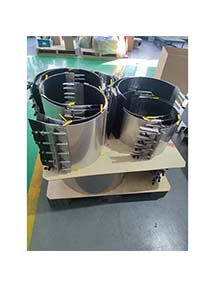High Pressure Applications of Gate Valves for Industrial Use
The Importance of High-Pressure Gate Valves in Industrial Applications
In the realm of fluid control systems, high-pressure gate valves play a pivotal role in ensuring the efficient and safe transportation of various fluids, whether in oil and gas, chemical processing, or water treatment industries. Gate valves, known for their simple design and reliable operation, are particularly suited for on/off control rather than throttling. Understanding the significance of high-pressure gate valves, their design features, and applications can provide insight into their crucial role in industrial applications.
Design Features of High-Pressure Gate Valves
High-pressure gate valves are specifically engineered to withstand extreme pressure conditions, typically exceeding 600 psi. Their robust design includes durable materials such as stainless steel, alloy steel, and cast iron, making them ideal for high-pressure environments. These valves often feature a wedge-shaped closure mechanism, allowing for a tight seal when closed, and preventing fluid leakage when in the off position.
The construction of a high-pressure gate valve involves several key components, including the valve body, bonnet, gate, and actuator. The valve body is designed to handle the pressure exerted by the fluid, while the bonnet provides access for maintenance and inspection. The gate, which typically operates in a linear motion, is raised or lowered by an actuator, which can be manual or automated. This combination of features allows for minimal resistance to flow when the valve is open, enabling efficient fluid transport.
Applications in Various Industries
High-pressure gate valves are indispensable in several industries where control over fluid flow is critical. In the oil and gas sector, these valves manage the flow of crude oil and natural gas through pipelines, ensuring that operations remain safe even under high-pressure conditions. Similarly, in chemical processing facilities, high-pressure gate valves control the movement of corrosive and hazardous fluids, maintaining safety protocols and preventing leaks.
gate valve high pressure

Water treatment plants also rely on high-pressure gate valves to regulate water flow and pressure effectively. These valves are crucial for controlling the distribution of treated water and managing pressure fluctuations within the system. Additionally, power generation facilities utilize high-pressure gate valves in steam lines, where they regulate flow to turbines and other critical components.
Advantages of High-Pressure Gate Valves
One of the primary advantages of high-pressure gate valves is their ability to provide a tight seal, which minimizes the risk of leaks in high-pressure applications. This reliability is essential for maintaining safety and compliance with industry regulations. Furthermore, their low-pressure drop during operation enhances the overall efficiency of fluid transport systems.
Moreover, high-pressure gate valves require minimal maintenance due to their robust design. When properly maintained, they can provide many years of reliable service, which reduces operational costs for companies.
Conclusion
High-pressure gate valves are a fundamental component of fluid control systems across various industries. Their design, reliability, and efficiency make them indispensable in applications involving extreme pressure. Understanding their functionality and significance not only highlights their contributions to industrial operations but also underscores the need for careful selection and maintenance to ensure optimal performance. As industries continue to evolve and demand more from their fluid control solutions, high-pressure gate valves will undoubtedly remain at the forefront of this critical field.
-
The Smarter Choice for Pedestrian AreasNewsJun.30,2025
-
The Gold Standard in Round Drain CoversNewsJun.30,2025
-
The Gold Standard in Manhole Cover SystemsNewsJun.30,2025
-
Superior Drainage Solutions with Premium Gully GratesNewsJun.30,2025
-
Superior Drainage Solutions for Global InfrastructureNewsJun.30,2025
-
Square Manhole Solutions for Modern InfrastructureNewsJun.30,2025
-
Premium Manhole Covers for Modern InfrastructureNewsJun.30,2025
